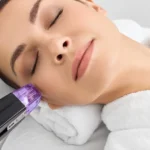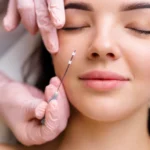Andropause is a condition that affects men of all ages and can cause a wide range of symptoms. The signs and symptoms of Andropause are similar to those experienced by people with other health conditions such as diabetes, heart disease, or depression—but any one thing does not cause them.
Andropause is a condition that results from the decline of men’s hormone levels as they age, a natural process known as male menopause. There are many symptoms of Andropause, including:
- Fatigue
- Hot flashes
- Increased sweating
Andropause can be treated with hormone replacement therapy (HRT). HRT is available in many forms and from various sources—you may be able to find it at your local pharmacy or health clinic.
Symptoms of Andropause
Erectile Dysfunction
Erectile dysfunction is the inability to get or keep an erection. Erectile dysfunction can be a symptom of Andropause and other medical conditions such as diabetes, heart disease, stroke, or high blood pressure.
While it’s true that men over 50 experience erectile issues more frequently than their younger counterparts (Andropause), this isn’t just a problem for older men—it affects both young and older men alike. If you’re experiencing erectile dysfunction symptoms and want to know more about them, visit our website at www.yourandropauseguide.com/erectile-dysfunction/.
Diabetes
If you have these conditions and notice that your semen volume is lower than usual, you must visit the doctor for testing and treatment options.
Sleep Disturbances
Sleep disturbances are common with androgen deprivation, as you may have noticed. It can be challenging to fall asleep, wake up during the night, or wake up early in the morning—even if it’s only for a few minutes.
If you’re experiencing these symptoms, talk to your doctor about how to manage them so that they don’t interfere with your day-to-day activities and cause any health problems.
Increasing Abdominal Fat
Visceral fat is a dangerous type of fat that accumulates around internal organs. Visceral fat produces hormones called cytokines, which can increase inflammation and affect your heart. An increase in visceral fat has been linked with a higher risk of heart disease, diabetes, and certain cancers.
Low testosterone levels may cause visceral obesity due to an age-related decline in quantity or quality of sperm production or testicular tissue shrinkage that leads to loss of libido (sex drive).
- Chronic fatigue or sudden lack of energy
- Fatigue is a symptom of many conditions, including:
- Chronic fatigue syndrome (CFS)
Fibromyalgia
Lyme disease is an infection caused by an infected tick bite that can cause other symptoms like joint pain and headaches.
- Decreased sense of well-being and happiness
- Decreased sense of well-being and happiness
- Sudden onset of irritability, mood swings, and apathy
- Sudden onset of fatigue
- Forgetfulness, confusion, or “brain fog.”
Depression
Depressed moodiness, irritability, and increased mood swings
You may notice that you are more moody and irritable than usual during the transition to menopause. This is a common symptom of Andropause, which can be treated with medication if it’s causing problems for you.
If you have mood swings due to Andropause, talk to your doctor about whether they should be treated with medication or something else (such as lifestyle changes like exercise).
Loss of Lean Muscle Aass (Sarcopenia) & Loss of Strength
Sarcopenia is a loss of muscle mass, a normal part of aging. But while this term might sound scary, it’s not the same as osteoporosis—a condition where bone density weakens and breaks down over time.
Sarcopenia can be treated with strength training or other exercises that help you regain lean muscle mass.
How to Prevent Andropause
Testosterone Replacement Therapy
Testosterone replacement therapy has benefited some men, but it’s not for everyone. Before considering this option, talk with your doctor about the risks and benefits of testosterone replacement therapy.
Testosterone replacement therapy can cause side effects such as acne and hair loss if taken at high doses over long periods. It may also cause liver damage if you take more than the recommended dose of testosterone in a short period (within two weeks).
If you’re considering taking testosterone supplements or injections, ask your doctor whether they have been studied by medical professionals who specialize in treating male sexual dysfunction issues like low testosterone levels; these doctors are called urologists or endocrinologists.
Try Phytoestrogens
Phytoestrogens are estrogen-like compounds found in plants. They have been shown to affect men with low testosterone positively, but there’s no scientific evidence that they can help treat low testosterone.
Phytoestrogens are found in soy products, flax seeds, and broccoli.
Eat More Fruits and Vegetables
Eating fruits and vegetables is the best way to prevent Andropause. Fruits and vegetables contain phytoestrogen, which boosts testosterone levels so that you can feel more confident in your skin.
Phytoestrogens are found in soy products, flaxseed, and alfalfa.
Exercise and Take a Proper Diet
Exercise is good for your overall health. It’s important to exercise every day, especially if you’re going through Andropause.
Exercise can help you lose weight, feel better about yourself, and improve your sleep quality, mood, stress levels, and more!
How Serious is Andropause
It can be Severe if You Don’t Acknowledge it
If you have low testosterone, it’s essential to know that this can be serious. Men with low testosterone are at increased risk for heart disease and other health problems.
A 2015 study found that men who had a low testosterone level were more likely to have depression than their peers who had normal levels of the hormone. It’s also been linked to an increased risk of suicide and reduced quality of life in older men.
So what does all this mean? If your doctor thinks you might have Andropause (or any other type of hormonal imbalance), they will want to help you get treatment immediately so that you can feel better again!
Andropause is a Man’s Version of Menopause
Andropause is like a man’s version of menopause. It’s not the same, but it has similar effects and symptoms. Men experience Andropause as they age, just like women do with their period changes.
And the symptoms are often more severe in older men than in younger ones—which makes sense since the body has been through so many changes over time that it needs more time to recover from them!
The good news is that while there may be some differences between how men and women deal with these physical changes during this stage in life, overall, they’re pretty similar: You’ll probably notice weight gain (even if you don’t have any), hair loss or thinning (again), mood swings or depression (again)
It is Not the Same as Male Menopause.
You may be wondering, “Is andropause a real thing?” The answer is yes. It’s a natural part of aging that occurs in both men and women as they age. It’s more common than male menopause, yet it’s often overlooked or misunderstood by patients who don’t understand its medical definition or symptoms.
Andropause symptoms may include changes in sexual function, mood, endurance, and other areas.
Andropause is a term used to describe the period when men experience changes in their hormone levels and other health issues.
These symptoms can include:
- Changes in sexual function include trouble getting an erection or difficulty with orgasm.
- Mood swings, such as feeling sad for no reason or feeling angry for no reason.
- Endurance problems with exercise (like walking up stairs).
Conclusion
Andropause is a severe condition. It can be challenging to recognize if you are suffering from it because many symptoms are vague and nonspecific.
At Absolute Health, we believe that health care should be a shared responsibility between you and your doctor.
Our team of experts is here to help you take control of your health—from the moment you step into our office until the moment you leave. We want to make sure that no matter what happens in between, every patient is treated with respect, kindness, and compassion.
That’s why we offer men’s andropause services, including testosterone replacement therapy, hormone optimization treatments, and more. Our experts will work with you to find the best way to feel better about yourself today and tomorrow.







